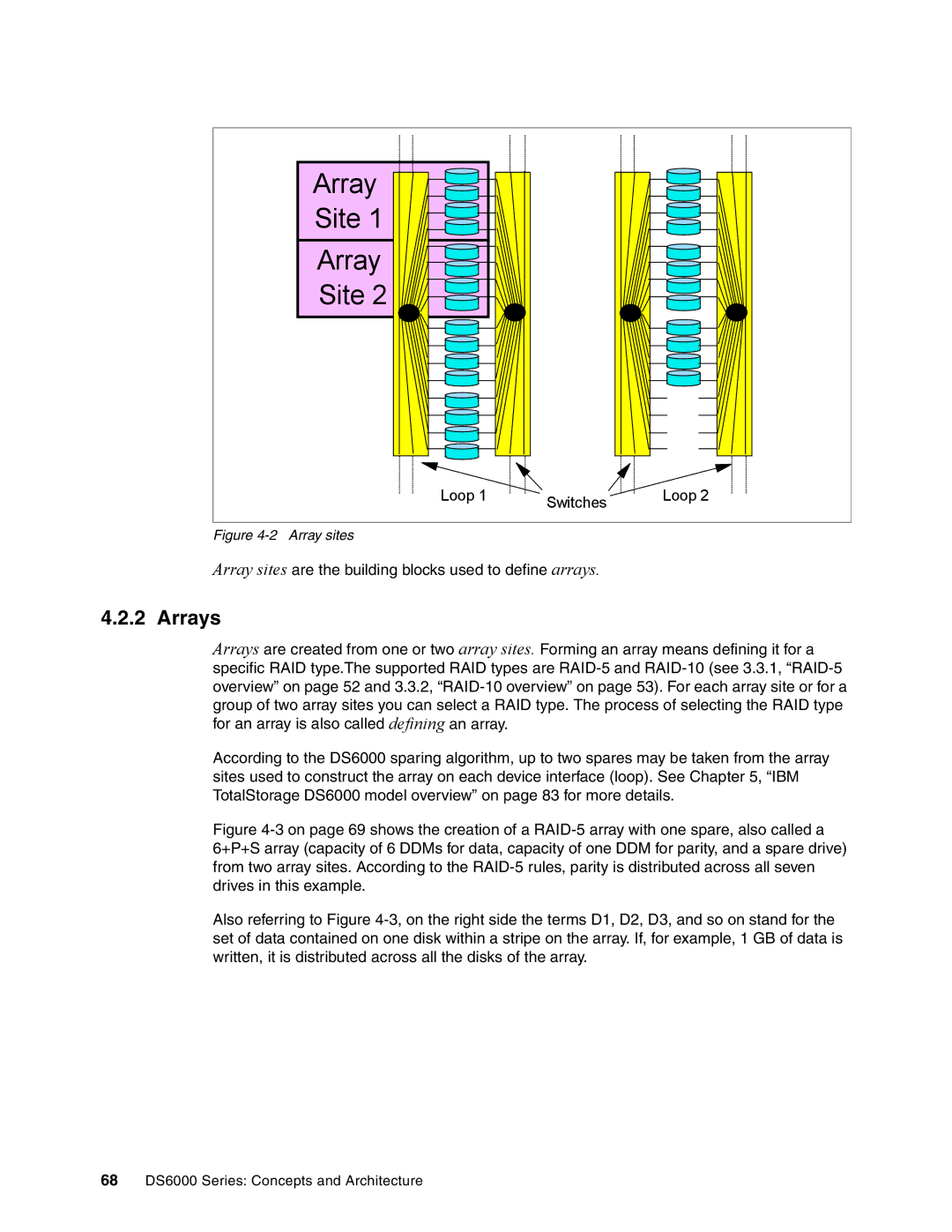
Array |
Site 1 |
Array
Site 2
Loop 1 | Switches | Loop 2 |
|
|
Figure 4-2 Array sites
Array sites are the building blocks used to define arrays.
4.2.2 Arrays
Arrays are created from one or two array sites. Forming an array means defining it for a specific RAID type.The supported RAID types are
group of two array sites you can select a RAID type. The process of selecting the RAID type for an array is also called defining an array.
According to the DS6000 sparing algorithm, up to two spares may be taken from the array sites used to construct the array on each device interface (loop). See Chapter 5, “IBM TotalStorage DS6000 model overview” on page 83 for more details.
Figure 4-3 on page 69 shows the creation of a RAID-5 array with one spare, also called a 6+P+S array (capacity of 6 DDMs for data, capacity of one DDM for parity, and a spare drive) from two array sites. According to the RAID-5 rules, parity is distributed across all seven drives in this example.
Also referring to Figure 4-3, on the right side the terms D1, D2, D3, and so on stand for the set of data contained on one disk within a stripe on the array. If, for example, 1 GB of data is written, it is distributed across all the disks of the array.
68DS6000 Series: Concepts and Architecture
